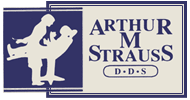Articles - Your Health Magazine, April 2009
Ease of Breathing and Sleep Apnea, Inner Peace and Beauty
Obstructive sleep apnea is essentially choking. Not much inner peace there. Whether a snort occurs while awake and laughing or asleep and dreaming, it is the sound of an apnea event. The on-edge feeling that accompanies this is from the adrenaline-like stress hormone the body secretes to get oxygen to the cells. It is a fight-or-flight response to a relaxed tongue muscle narrowing, then blocking, the throat. When muscle tone is adequate enough to un-stick the tongue, a snorting sound occurs. This is from the aerodynamics of breath passing through the vocal cords.
New findings show elevated levels of these stress hormones, not only at night, but during the day. Prior to this, these levels of stress hormone throughout the day were considered normal. What is normal? Is it healthy? Health is defined as absence of disease.
What about “vital aliveness” – the radiance of true beauty? That comes from inner peace. Ease of breathing appears to directly influence this “inner peace”.
In dental school, we were advised that one impact of human evolution is smaller mouths and eventually less teeth. That means less room for the tongue to fit in the mouth and more of it forced into the throat. Weston Price’s work showed smaller mouths and crowded teeth in second and third generation families moving from primitive society settings into modern civilization. Perhaps that is why we see such a high incidence of orthodontics, sleep apnea and ADHD in our society. I believe that ADHD is just reaction to excess adrenaline type hormone secretion. Its incidence increases when the adult teeth come into a not yet full size adult jaw.
Could it be that the child is choking and needs the adrenaline to manage their throat? The on-edge-feeling will continue until the individual utilizes the excess adrenaline-like stress hormone, as in the fight-or-flight response.
Prescribed pharmaceuticals can also take the place of the adrenaline without leaving the on-edge-feelings. It’s a band-aid. And there may be a price to pay for the long-term effects of those chemicals. It is prevalent in most of us adults, too. We go, go, go and when we attempt to sit down to just relax our bodies and minds (I don’t mean by reading, or watching TV), we feel compelled to go again until we finally crash and sleep.
So, to help relax, it is suggested to take some slow deep breaths, which really helps restore oxygen deficits and actively bypass a throat narrowed by the tongue. This is a better band-aid, as it is not playing chemistry with the body, of which we “really” have a very limited understanding. Managing the relationship between the tongue, the mouth and the throat, can create an environment conducive to ease of breathing, where there is less need for the body to produce and circulate adrenaline type stress hormones, thus, greater inner peace.
Like it or not, this falls into our own behavioral habits, like breast feeding children to help development of mouths that are larger and in greater harmony with the teeth and tongue, or our eating nutritious foods. It also falls into the laps of the dental profession that manages the size, shape and contours of the mouth, the home of the tongue. It not only includes the management of daytime and sleep apnea, it also includes a different knowledge in positioning, replacing and repairing teeth.
